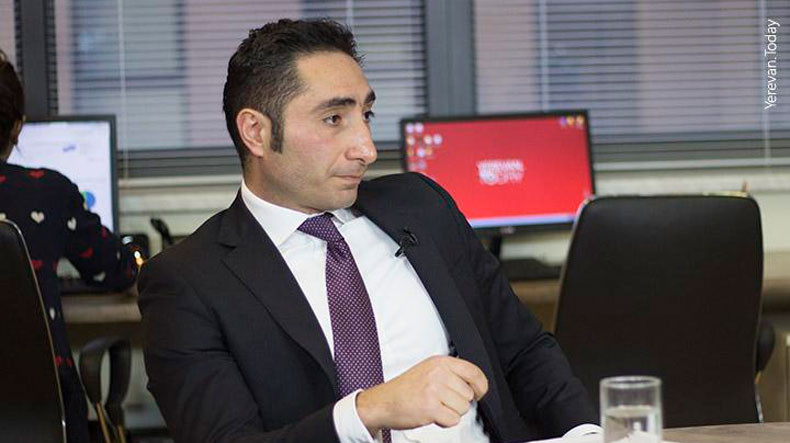
Analysis: Foreign investments are fleeing Armenia
By Sargis Grigoryan, GPartners law firm
An important piece of news went practically unnoticed on 12 August 2020: the European Bank for Reconstruction and Development announced that its investments in the Amulsar gold mine are due to end, as protests have been renewed at the Amulsar site in recent weeks. Unfortunately, also, Lydian’s key shareholders and lenders have had to leave the project which had a strong “social license to operate” in Jermuk. The foreign capital is fleeing Armenia to avoid expropriation and manage political risk.
This is a result of the Armenian government’s unlawful inactions for last two years; the Government failed to provide a stable legal and regulatory environment. It is true that the political instability, poor state institutions, uncertain policy actions and purported instances of restrictive business practices in Armenia, have contributed to a “wait-and-see” attitude among foreign investors. Various international organisations advised the Government that it was expected to undertake concrete policy actions to improve the overall investment climate in the country including to settle the Lydian’s case, for example, the 2019 UNCTAD Investment Policy Review.
It is not secret that Armenia’s poor institutions are currently impeding foreign investments and acting like a “tax”, thus increasing the cost of FDI. Investors are unwilling to invest in Armenia where institutions encourage bureaucracy, nepotism and red tape because these factors increase the cost of doing business. The Government is certainly wrong by using corruption and the rule of law as measures of institutional quality which, currently, has an increasingly negative impact on FDI, due to the weak structure of state institutions. The same is also true with the country’s regulatory quality which also plays an increasingly negative role in attracting FDI in Armenia. As an example, the Government intends to confiscate and expropriate assets under the new Law on Property Confiscation.
This is all happening in the Lydyan’s case because of the Government’s failure to undertake its obligation enshrined in international law and the Foreign Investments Act to take active measures to protect the Lydian’s investment from adverse effects. The adverse effects have stemmed both from private parties and from actions of the Government as well as its organs. As an example, police did not act efficiently at the site of the mine. The Government was under an obligation not only actively to protect the Lydian’s investments against riots and looting but also to take precautionary measures to prevent these events from occurring. The Government could not guarantee the Lydian’s shareholders and investors the legal security enabling the investors to pursue their rights effectively in Armenia.
What to do…
It is necessary to find the right balance between the respect of the most important and shared environmental principles, which are used, in practice, by states as justification for the issuance of certain measures aimed at environmental protection, and the protection of foreign investors’ rights. The Government must transparently define its policy in the Lydian’s case, among others, to intervene diligently where it has the power and duty to do so to protect the normal ability of the investor’s business to function...a duty, enforceable by investment arbitration, to use the powers of government to ensure the foreign investment can function properly on a level playing field, unhindered and not harassed by the political and economic domestic powers that be.
The Government must also take into consideration that the Lydian’s project successfully met the IFC Performance Standards on Environmental and Social Sustainability which aimed to identify risks and impacts, and were designed to help avoid, mitigate, and manage risks and impacts as a way of doing business in a sustainable way, including stakeholder engagement and disclosure obligations of Lydian in relation to project-level activities.
Urgent investment-related measures
The COVID-19 pandemic has led, in addition to dramatic health implications for Armenian people, to an almost immediate and profound economic upheaval in the local economy. The Government has tried to put in place a variety of measures in response to the coronavirus pandemic which are practically ineffective to tackle the devastating economic and social effect of the pandemic. The Government urgently needs to adopt investment policies focusing investment facilitation and incentives (financial and fiscal) as well as state participation in crisis-affected industries which will make an important contribution to fight the economic crisis. It must also take measures in support of investment and for protecting critical domestic industries in the crisis.
The Government must voice its readiness to intervene more actively in the market to keep strategic businesses afloat. This can include the options of capitalization, equity investment or even full or partial nationalization. Moreover, financial and fiscal aid for SMEs must be a core part of most state aid packages related to COVID-19. They must include, in general, guaranteed recovery of delayed payments, indirect financing to suppliers through their buyers, tax credits and other fiscal benefits to firms, co-financing of development programmes, and direct provision of financing to local firms.
Newsfeed
Videos






























